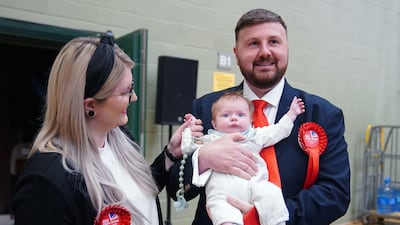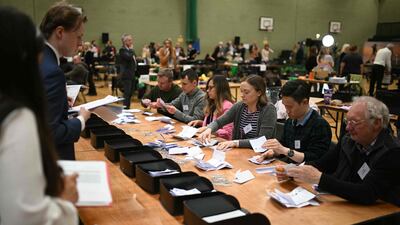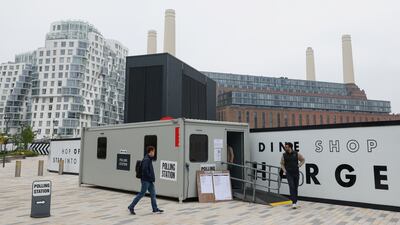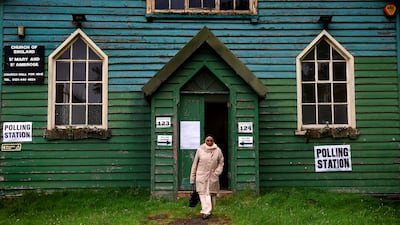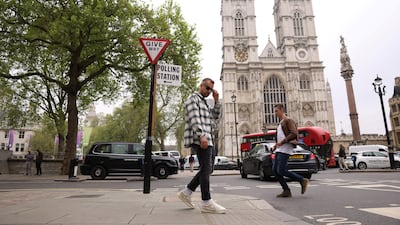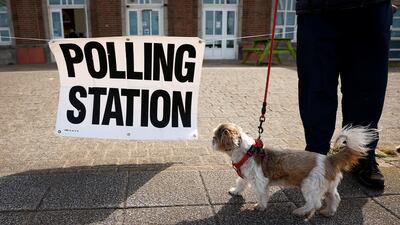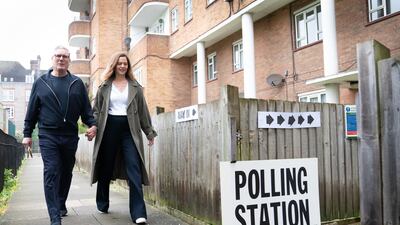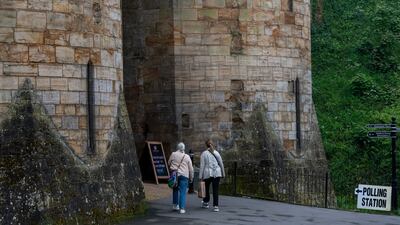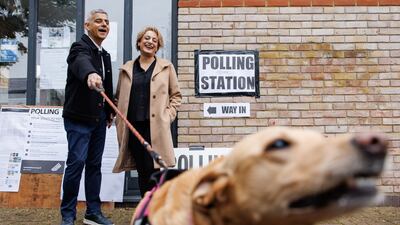Labour has won Blackpool South in the third biggest swing from the Conservative Party to Labour at a by-election since the Second World War, as the opposition also made gains in local council contests across England.
The Conservatives, so far, are down 371 seats in local elections, heaping pressure on national leader Rishi Sunak.
The ruling Conservative party sought solace in the re-election of mayor Ben Houchen in Tees Valley, north-east England, albeit with a vastly reduced majority – a victory that is believed to have protected Prime Minister Sunak from a possible revolt against his leadership.
Andrea Jenkyns, one of those who had called for a change of leader, said her colleagues were “unlikely” to move against Mr Sunak: “We have to work with what we have got.”
Election expert John Curtice suggested the final outcome could be the Conservatives' worst performance for 40 years.
The Blackpool contest was triggered by the resignation of Scott Benton after a lobbying scandal. Labour's Chris Webb won 10,825 votes, a majority of 7,607.
Tory David Jones came in second with 3,218 votes, just 117 ahead of Reform UK's Mark Butcher.
“People no longer trust the Conservatives. Prime Minister: Do the decent thing, admit you've failed and call a general election,” Mr Webb said.
Labour leader Keir Starmer said: “This seismic win in Blackpool South is the most important result today”.

“That wasn't just a little message, that wasn't just a murmur, that was a shout from Blackpool,” he said.
“We want change, and Blackpool speaks for the whole country. It says we have had enough now after 14 years of failure, 14 years of decline. We need to turn the page and start afresh with Labour, which has a positive plan for the country.”
Tory deputy chairwoman Angela Richardson told the BBC that the result was not unexpected.
“I think, given the circumstances that caused the by-election in the first place, it was always going to be difficult for the Conservatives,” she said.
'Good day for Labour'

Of the 107 councils that held elections on Thursday, 102 have declared their full results.
The Conservatives suffered a net loss of 371 councillors, as the party lost control of 10 councils. Labour won control of eight councils as it saw a net gain of 204 seats.
Labour won all three of the new mayoral posts up for grabs this year – in the East Midlands, North East and York and North Yorkshire – while Conservative Mr Houchen secured a third term at Tees Valley.
Results for two incumbents – Labour's Sadiq Khan in London and Conservative Andy Street in the West Midlands – are expected on Saturday.
At a victory rally at Northallerton Town Football Club in North Yorkshire, Mr Starmer said the win was “vindication” for the Labour Party and showed that “people are fed up with a failed government”.
“We've had a positive campaign here and I am very, very proud to stand here as leader of the Labour Party to celebrate this historic victory, and it is a historic victory. These are places where we would not have usually had a Labour Party success, but we've been able to create that success and persuade people to vote for us,” he said.
To the voters, he said: “Thank you for putting your trust in Labour, we will not let you down.”
It is a “very good day for Labour,” he said.
Ed Davey, leader of the Liberal Democrats, said voters “have had enough of being taken for granted and being let down”.
“The message from across the country is loud and clear: People from around our great country have had enough of this out-of-touch Conservative government,” he said.
'Tough night'
The Conservative Party chairman appealed to restive Tory MPs to “wait through the weekend” after a bruising first set of local election results.
Richard Holden admitted it had been a “tough night” but insisted the party's drubbing on Friday was “typical for a government in midterm” amid rumblings of unease among the parliamentary back benches.
Most of the council seats up for re-election in England were last contested in 2021, at the peak of former prime minister Boris Johnson's popularity as the coronavirus vaccine was distributed.
Meanwhile, Mr Johnson was turned away from a polling station after forgetting to bring photo ID. He was told by staff at a polling station in South Oxfordshire he would not be able to vote without proving his identity.
Mr Johnson introduced the requirement to provide photo ID during his time in Downing Street, as part of the Elections Act 2022.
It is understood he was later able to vote, and that he voted Conservative.
Thursday’s election is the first time many voters in England and Wales have had to present ID to vote under provisions introduced at last year’s local elections.
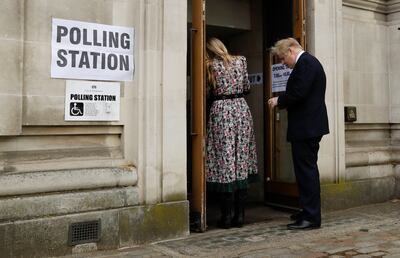
Sunak under pressure
Political commentator Lord Hayward said Mr Sunak's position was not in immediate jeopardy.
“In recent days I have been left with the very clear impression that, among Tory MPs, the 'let's have a leadership election' balloon has been substantially deflated,” he said.
However, “an audible, very small group will disagree and probably do so early”.
Reform UK's leader Richard Tice said his party was outperforming the Tories in Sunderland.
“Outstanding early results in Sunderland,” he said. “We expect to beat Tories in majority of 25 seats in Sunderland.”
In the first few seats declared, Reform UK came second behind Labour.
A strong showing by Reform UK could add to Tory unease about Mr Sunak's ability to lead the party to a general election victory.
Mr Tice said his party had “rapidly become the real opposition to Labour, whether it's in the North, the Midlands, we know it's the case in Wales”.
In Sunderland, one of the few councils where Reform fought every seat, it beat the Conservatives into third place in 16 of the 25 seats up for grabs, while Labour made a net gain of six to increase its comfortable majority.
In London, forecasts have consistently put Mr Khan ahead of Ms Hall, with a poll published on Wednesday by Savanta giving him a 10-point advantage after his lead tapered over the campaign.
Allies of Mr Khan said they expected a “close” fight, with the result announced on Saturday.
The final results from the various elections are not expected until Sunday but key developments include:
- Labour won Rushmoor in Hampshire for the first time and claimed the council in key general election battleground Redditch.
- Labour won Hartlepool council, regaining ground in an area where the party suffered a Westminster by-election humiliation in 2021.
- Labour won Thurrock, one of its top targets and an area of the country that will be a key battleground with the Tories at the next general election.
- The Tories clung on by a single seat in Harlow, a council focused on by Sir Keir on the eve of polling day.
- The Greens put on 13 councillors, the Liberal Democrats gained eight while there were also increases for independents and residents groups.
- Labour gained the Cumbria police and crime commissioner from the Conservatives.
The gains for Labour came despite setbacks in some previously safe areas, particularly those with large Muslim populations, where the party's candidates may have suffered as a result of Sir Keir's position on the Israel-Hamas conflict in Gaza.
Labour lost control of Oldham after gains by independents, with the Gaza crisis likely to have been a factor.
